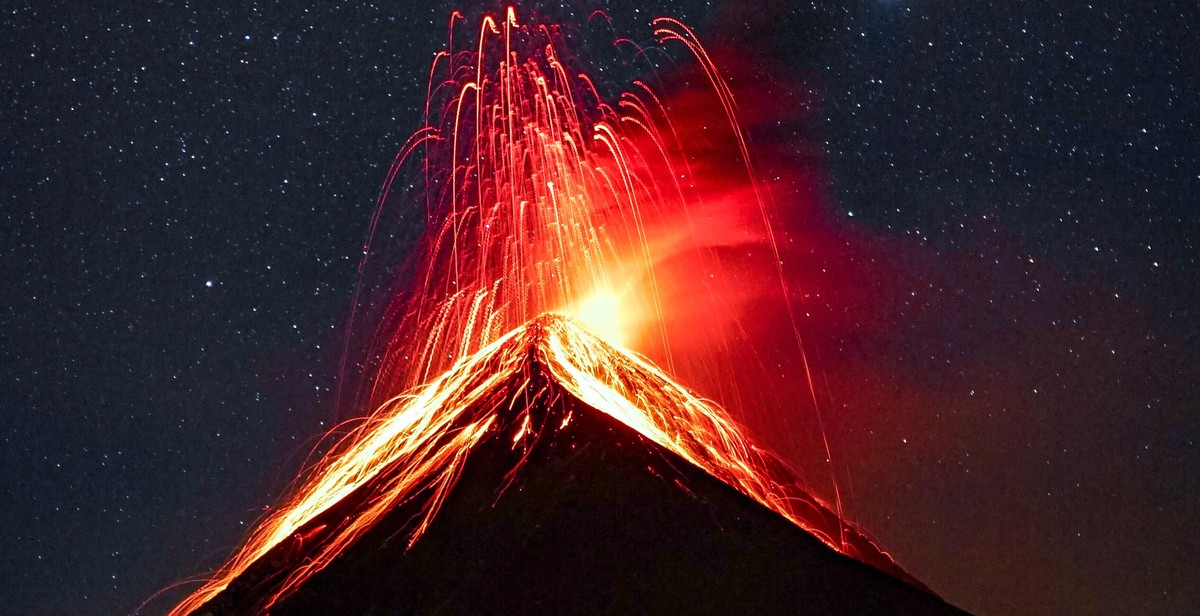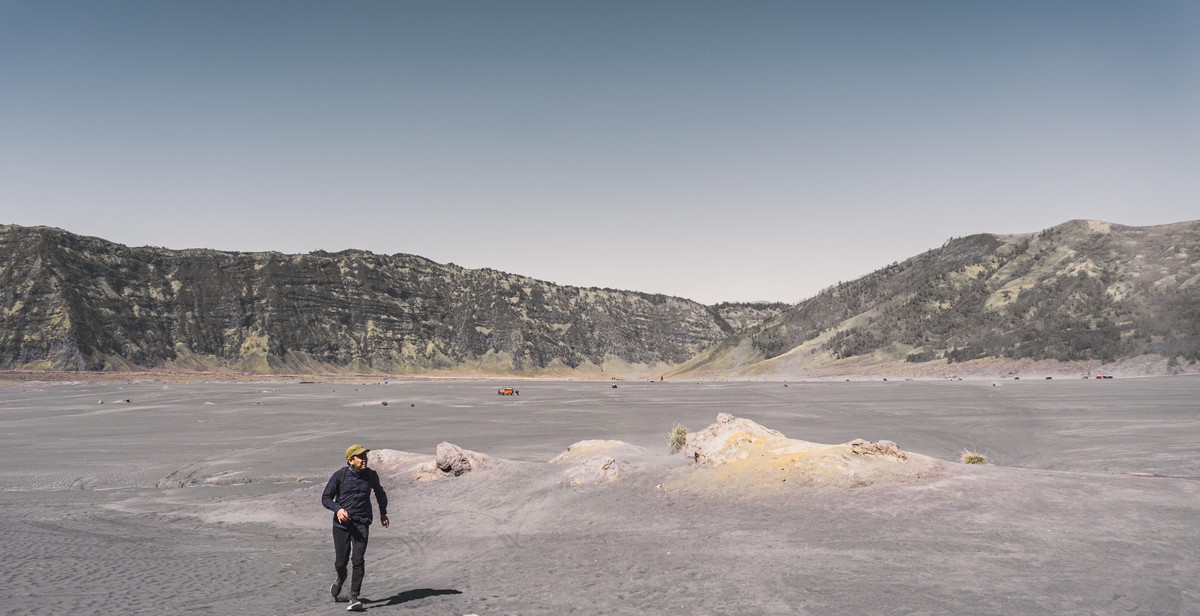How to Become a Volcanologist: Steps to Pursuing a Career in the Study of Volcanoes
Have you ever been fascinated by the raw power and destructive force of volcanoes? Do you want to study them and learn more about their behavior? If so, you may want to consider becoming a volcanologist.
Volcanology is a branch of geology that focuses on the study of volcanoes, magma, and related geological phenomena. Volcanologists are experts in understanding volcanic activity, predicting eruptions, and monitoring volcanic hazards.
What does a volcanologist do?
Volcanologists study volcanoes and their behavior, including the physical, chemical, and geological processes that drive them. They may collect rock and ash samples, measure gas emissions, and use remote sensing technology to monitor volcanic activity. They also analyze data to predict eruptions and assess potential hazards to nearby communities.
Steps to becoming a volcanologist
- Complete a Bachelor’s degree in geology, earth science, or a related field.
- Gain experience through internships or research opportunities in volcanology.
- Earn a Master’s degree or Ph.D. in volcanology or a related field.
- Consider obtaining certification through a professional organization, such as the American Geosciences Institute.
- Apply for jobs in government agencies, universities, or research institutions.
If you have a passion for studying volcanoes and a strong background in earth science, becoming a volcanologist can be a rewarding career choice. With the right education and experience, you can make a significant contribution to our understanding of these fascinating natural wonders.

What is Volcanology?
Volcanology is the study of volcanoes, including their formation, behavior, and the effects of volcanic activity on the environment. It is an interdisciplinary field that combines aspects of geology, physics, chemistry, and environmental science.
Defining Volcanology
Volcanology is a branch of geology that focuses on the study of volcanoes, magma, and related geological phenomena. Volcanologists are scientists who specialize in the study of volcanoes and volcanic activity.
Volcanic activity can take many different forms, including explosive eruptions, lava flows, ash clouds, and mudflows. Volcanologists study the processes that drive these events, including the properties of magma, the behavior of volcanic gases, and the geologic structures that control volcanic activity.
Why Study Volcanoes?
Studying volcanoes is important for a number of reasons. Volcanic activity can have significant impacts on the environment, including air pollution, water contamination, and damage to infrastructure and property.
Volcanic eruptions can also have a major impact on human populations, both in terms of immediate effects like injury and death, and longer-term effects like displacement and economic disruption.
By studying volcanoes, scientists can better understand the processes that cause volcanic activity and develop strategies to mitigate the impact of volcanic eruptions on human populations and the environment. Volcanology research can also help us to understand the history of our planet, including the formation of the Earth’s crust and the evolution of life on Earth.
Overall, the study of volcanoes is a fascinating and important field that requires a deep understanding of geology, physics, chemistry, and environmental science. By pursuing a career in volcanology, you can contribute to our understanding of the natural world and help to protect human populations from the dangers of volcanic activity.

Steps to Becoming a Volcanologist
Volcanologists are scientists who study volcanoes, their behavior, and the impact they have on the environment. If you have a passion for geology, earth science, and adventure, then a career in volcanology might be the perfect fit for you. Here are the steps to pursuing a career in the study of volcanoes:
Step 1: Education
To become a volcanologist, you need to have a strong educational background in geology, earth science, and physics. A bachelor’s degree in geology or earth science is the minimum requirement for entry-level positions in this field. However, to advance in your career and work on more complex research projects, you will need to pursue a master’s or a Ph.D. in volcanology or a related field.
During your undergraduate studies, you should take courses in geology, earth science, physics, and math. You should also participate in research projects and internships to gain hands-on experience in the field. Some universities also offer specific volcanology courses that you can take to specialize in this area.
Step 2: Gain Field Experience
Field experience is crucial to becoming a successful volcanologist. You need to have hands-on experience in the field to understand the behavior of volcanoes and the impact they have on the environment. You can gain field experience by participating in field trips, joining research projects, and internships.
Volcanologists often work in harsh environments, so you need to have physical stamina, endurance, and the ability to work in extreme weather conditions. You also need to have excellent communication skills, as you will be working with a team of scientists and researchers.
Step 3: Build a Network
Building a network is essential to advancing your career in volcanology. You can build a network by attending conferences, joining professional organizations, and participating in research projects. You can also connect with other volcanologists on social media platforms like LinkedIn and Twitter.
Networking can help you find job opportunities, collaborate on research projects, and learn about the latest developments in volcanology. It can also help you build a reputation in the field and establish yourself as an expert.
| Steps to Becoming a Volcanologist |
|---|
| Step 1: Education |
| Step 2: Gain Field Experience |
| Step 3: Build a Network |
In conclusion, becoming a volcanologist requires a strong educational background in geology, earth science, and physics, as well as hands-on field experience and a robust network of professional contacts. Pursuing a career in volcanology is an exciting and rewarding journey that can lead to groundbreaking scientific discoveries and a deeper understanding of our planet’s natural wonders.

Career Opportunities in Volcanology
Volcanology is a fascinating field that offers a wide range of career opportunities. As a volcanologist, you can work in academic research, volcanic hazard mitigation, or even in the burgeoning field of volcanic tourism. Below are some of the career opportunities available in each of these areas:
Academic Research
Academic research is one of the most common career paths for volcanologists. In this field, you’ll be responsible for conducting research on volcanoes and volcanic processes, and publishing your findings in academic journals. Some of the job titles in this area include:
- Research Scientist
- Professor of Volcanology
- Postdoctoral Researcher
To pursue a career in academic research, you’ll typically need a Ph.D. in volcanology, geology, or a related field. You’ll also need to have a strong background in mathematics, physics, and chemistry, as well as excellent analytical and problem-solving skills.
Volcanic Hazard Mitigation
Another area where volcanologists can find employment is in volcanic hazard mitigation. In this field, you’ll be responsible for monitoring and predicting volcanic activity, and working with government agencies and emergency responders to develop plans for mitigating the hazards posed by volcanoes. Some of the job titles in this area include:
- Volcanologist
- Volcanic Hazard Analyst
- Emergency Management Specialist
To work in volcanic hazard mitigation, you’ll typically need a degree in volcanology, geology, or a related field. You’ll also need to have excellent communication and teamwork skills, as well as the ability to work well under pressure.
Volcanic Tourism
Finally, the field of volcanic tourism is a rapidly growing area where volcanologists can find employment. In this field, you’ll be responsible for leading tours to active volcanoes, educating tourists about volcanic processes and hazards, and ensuring their safety during their visit. Some of the job titles in this area include:
- Volcano Tour Guide
- Volcano Educator
- Volcano Safety Officer
To work in volcanic tourism, you’ll typically need a degree in volcanology, geology, or a related field, as well as excellent communication and customer service skills. You’ll also need to have a strong understanding of volcanic hazards and safety procedures.
| Job Title | Median Annual Salary |
|---|---|
| Research Scientist | $79,000 |
| Volcanologist | $68,000 |
| Volcano Tour Guide | $35,000 |
Overall, a career in volcanology can be both exciting and rewarding. Whether you choose to work in academic research, volcanic hazard mitigation, or volcanic tourism, you’ll have the opportunity to study one of the most fascinating natural phenomena on Earth.

Conclusion
Becoming a volcanologist is an exciting and challenging career path for those who are passionate about studying volcanoes and their impact on the environment. To pursue this career, you need to have a solid educational background in geology, earth science, or a related field.
Volcanologists play a crucial role in monitoring, researching, and predicting volcanic activity, which can help save lives and protect communities. They also contribute to our understanding of the Earth’s history and evolution, and help us prepare for future volcanic events.
If you’re interested in becoming a volcanologist, start by gaining a strong foundation in the sciences, and take advantage of opportunities to gain hands-on experience through internships, fieldwork, and research projects. Network with other professionals in the field, and stay up-to-date on the latest research and developments in volcanology.
Remember, becoming a volcanologist requires dedication, hard work, and a passion for the subject matter. But for those who are up to the challenge, it can be an incredibly rewarding and fulfilling career.
- Start by gaining a strong foundation in the sciences, and take advantage of opportunities to gain hands-on experience through internships, fieldwork, and research projects.
- Network with other professionals in the field, and stay up-to-date on the latest research and developments in volcanology.
- Remember, becoming a volcanologist requires dedication, hard work, and a passion for the subject matter. But for those who are up to the challenge, it can be an incredibly rewarding and fulfilling career.
So if you’re ready to explore the world of volcanology, start taking the necessary steps today to pursue your dream career!
